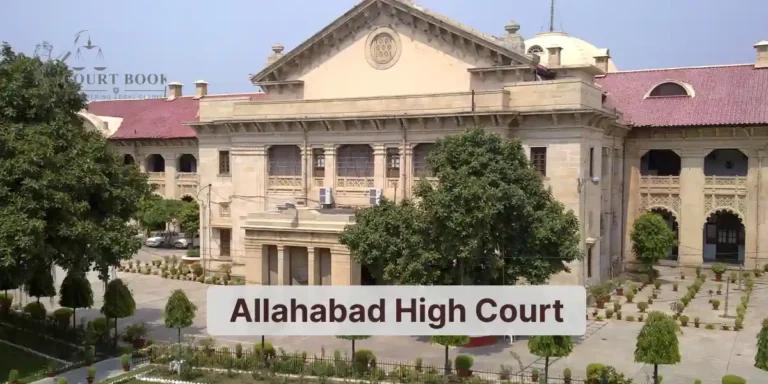The Allahabad High Court has ruled that not informing an arrested individual of the grounds of arrest in writing is a violation of both Article 22(1) of the Constitution and Section 50 of the Code of Criminal Procedure (CrPC).
In this significant order dated 9 April 2025, the Division Bench of Justice Mahesh Chandra Tripathi and Justice Prashant Kumar quashed the arrest of one Manjeet Singh @ Inder @ Manjeet Singh Chana, citing gross procedural lapses.
Case Background
The petitioner was arrested in connection with an FIR registered under Sections 420, 467, 468, 469, 406, 504, and 506 IPC at Milak Police Station in Rampur district. He challenged the remand order dated 26.12.2024, claiming that:
- He was not informed of the reasons or grounds for his arrest in writing.
- The arrest memo was a printed format that did not include any column for mentioning grounds of arrest.
- The remand magistrate passed a mechanical order without giving the petitioner an opportunity to oppose his judicial custody.
The High Court took a firm stand and declared:
“Neither the reasons nor grounds for arrest were communicated in writing to the petitioner at the time of arrest, thereby violating the constitutional safeguards under Article 22(1) and the statutory mandate under Section 50 CrPC (now Section 47 BNSS).”
The Court emphasized that furnishing written grounds of arrest is not optional, but a mandatory legal requirement.
Another crucial point the court noted was the lack of legal aid provided to the petitioner at the time of remand:
“Admittedly, no such effort had been made by the learned Magistrate to ensure adequate legal aid to the accused petitioner and appropriate opportunity of hearing at the time of judicial remand.”
Read also: Writ Petition Not an “Earlier Application” Under Section 42 of Arbitration Act: Delhi High Court
The Court reiterated that the right to legal aid flows from Articles 21, 22(1), and 39A of the Constitution. This right is further supported under Section 304 CrPC (now Section 341 BNSS), which mandates free legal assistance to those who cannot afford it.
The Bench referred to multiple landmark judgments to reinforce its decision:
The Supreme Court held that remand is illegal if the accused is not informed of the grounds of arrest.
It was emphasized that the Enforcement Directorate (ED) must provide written reasons for arrest to the accused.
The Apex Court laid out clear principles, including:
“The grounds of arrest must be communicated in a way that the arrested person can understand. If this is not done, the arrest and subsequent remand are vitiated.”
In this case, the arrest and remand were set aside due to only an arrest memo being provided, without specific grounds of arrest.
The High Court directed the Director General of Police (DGP), Uttar Pradesh to ensure strict compliance with these legal mandates:
“A circular must be issued to all Commissioners of Police, SSPs, and SPs for necessary compliance of Section 50 and 50A CrPC (now Section 47 and 48 BNSS) in light of the observations made above.”
The Court concluded that both the arrest and remand order were in violation of constitutional and statutory safeguards:
“Accordingly, the impugned order dated 26.12.2024 is hereby set aside. The arrest of the petitioner is also quashed. The petitioner shall be set at liberty, unless required in connection with any other case.”
The writ petition was allowed, and the Court directed for the order to be communicated to the concerned authorities for immediate action.
Consequently, the Court set aside the impugned remand order and quashed the arrest of the accused.
Case title - Manjeet Singh @ Inder @ Manjeet Singh Chana vs. State Of U.P. And 2 Others 2025















